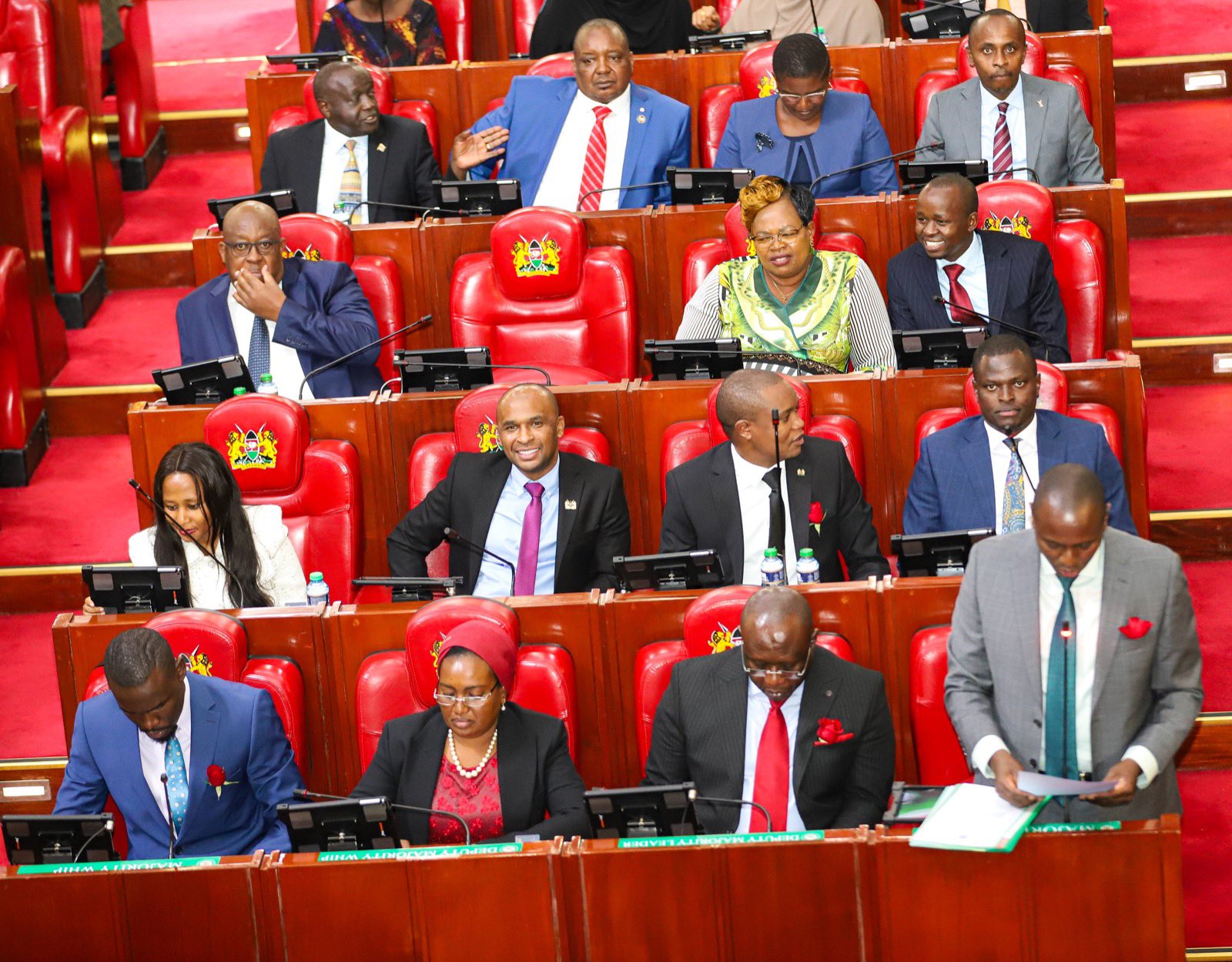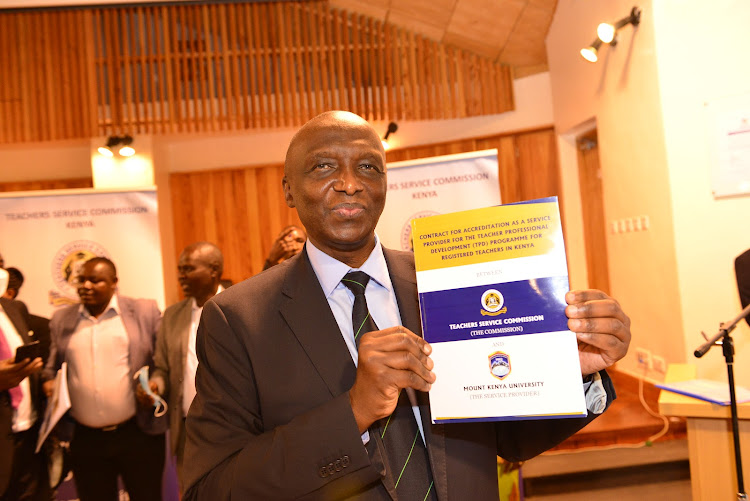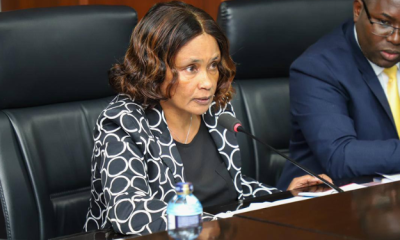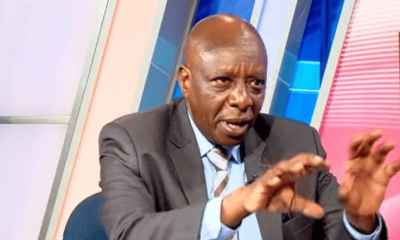Economy
Unaccounted For Millions To Mount Kenya University And Other Private Universities Triggers Heated Debate In Parliament After Auditor General’s Alarming Report

The leader of majority in parliament Kimani Ichungwa recently sparked a debate in parliament about what he termed as takeover by cartels in education education.
The legislator raised concerns over imbalance in allocation and funds by the government between the public and private universities. He particularly criticized the allocation of Sh730 million to Mount Kenya University which is a private institution while other public universities like Karatina, Egerton are facing financial difficulties and and the verge of closure.
He claims allocations made to some of the private universities cannot even be accounted for as they’re fraudulently gobbled away.
The situation where the government allocates substantial funds for publicly funded students in private universities, while public universities struggle for resources, raises concerns about the takeover of university education by cartels. pic.twitter.com/sjUILp58tj
— Kimani Ichung’wah (@KIMANIICHUNGWAH) June 13, 2023
Ichungwa’s lamentations comes at a time when the Auditor General Nancy Gathungu report for 2021/22 financial year, Sh3.4 billion disbursed to private universities could not be accounted for.
The report flagged anomalies including failure by five universities to provide documents despite receiving funds, lack of supporting schedules of students benefitting, duplicated schedules of payment as well as payment of tuition fees to non-existence students.
“The statement of receipts and payments reflects Sh85,016,468,678 in respect of transfers to other Government units which as disclosed in Note 6 to the financial statements includes Sh3,374,791,603 in respect of transfers to private universities. In the circumstances, the accuracy, completeness and regularity of transfers to other government units could not be confirmed,” reads the report
According to the report, despite the department disbursing Sh265.3 million to five universities, no acknowledgment letters and receipts from the universities were provided to confirm receipt of the funds.
And while another amount of Sh198.5 million was disbursed to three universities, they only confirmed receiving Sh183.3 million, resulting in un-reconciled and unexplained variance of Sh15.2 million.
The report also noted that an amount of Sh22.6 million was disbursed to 13 universities for 404 students but analysis of the supporting schedules revealed that these students had been duplicated in the schedules, resulting in an overpayment of the entire amount totaling Sh22.6 million.
“A transfer to private universities of Sh136,295,811 was made for 3,357 students who had graduated by November, 2021 and, therefore, Management may have disbursed funds for students who had already completed studies and exited the universities.”
In addition, the report reveals that an amount of Sh376.99 million was disbursed for a total of 8,964 students who were not active in the period July, 2021 to June, 2022 as they had not registered to sit for the scheduled exams in their respective universities while an amount of Sh337.2 million was disbursed for a total of 7,828 students who had been in the universities for more than four years which is the normal period undertaken for most undergraduate programmes.
According to the report, the management may have disbursed funds for students who had deferred or quit the universities as well as paid tuition fees to non-existent students in private universities.
The report comes hardly months after MPs directed Gathungu to carry out a special audit of all funds sent to 31 private universities that have been receiving exchequer funding.
Of the 30 universities among the top beneficiaries include Mount Kenya that gets Sh552.3 million for 12,479 students, Kabarak, Sh357.9 million for 7,715 students, Catholic University of East Africa Sh196.9 million for 4,685 students, Kenya College of Accountancy gets Sh223.9 billion for 5,142 students, university of Eastern African Baraton Sh183 billion for 4222 students and Zetech University Sh115.4 million for 2,836 students.
According to documents from Universities Fund in the 2017/18 Financial Year, private universities received Sh1.6 billion as grants for 18,587 students, in 2018/19FY they received Sh1.98 billion for 29,729 students, in 2019/20 FY they received Sh2.5 billion for 43,676 students while in the 2020/21 Financial Year they received Sh2.7 billion.
In the last four years, private campuses have received grants worth Sh8.7 billion from the government at the expense of public universities.
MKU is also a major beneficiary of the previous regime where in 2021, it cut a deal with the Teachers Service Commission (TSC) to offer professional courses for teachers.
This was after the teacher’s employer enforced that the refresher courses will be a requirement for teachers to enable them to renew their practising certificate every five years.
Mount Kenya University Vice Chancellor Prof. Deogratius Jaganyi holding a copy of the contract signed with Teachers Service Commission.
In this state-private sector deal, the institution stood to earn billions. It’s unclear how the process of choosing the suitable institutions were done and of it was an open process.
Nancy Gathungu, the auditor-general, in the report faults the state department of education for directly financing universities, contrary to legislation that requires that financial allocations be done through the fund.
Lately, there have been claims within the corridors of higher education that universities get funding directly from the state based on their managements’ capability to lobby for allocations.
But, the Universities Act (2012) established the fund and mandated it to finance universities. Section 53 (3) spells out the functions of the fund.
However, Gathungu says in the report: “The fund has only been advising the State Department for University Education on [how] to allocate and disburse to the public universities.”
Gathungu is, therefore, concerned that the fund is not discharging its lawful mandate: “In the circumstances, it has not been possible to confirm whether the fund has been carrying out its mandate required by the Universities Act, 2012.”
In the report, Gathungu says that a review of the records showed that the fund has not been allocating funds to universities as required by the law.
The fund, in its operations, adopted the 2016 Differential Unit Cost (DUC) principles for distribution of funds to universities. This has been deployed since 2017-18 in the allocation of funds to universities.
The DUC operates on the basis of the cost to an institution to teach one academic programme per student per year. DUC lumps specific programmes in terms of their cost into 18 clusters, ranging from the lowest that is KSh144,000 (US$1,260) for humanities and the highest being KSh720,000 for dentistry.
However, universities in the past four years have been advocating for the revision of the DUC to do away with disparity between public and private universities.
Investigations by relevant agencies will unearth and determine the extent of alleged fraud and address the loopholes.
Additional reporting by the people.
Kenya Insights allows guest blogging, if you want to be published on Kenya’s most authoritative and accurate blog, have an expose, news TIPS, story angles, human interest stories, drop us an email on [email protected] or via Telegram
-

 Investigations1 week ago
Investigations1 week agoBillions Stolen, Millions Laundered: How Minnesota’s COVID Fraud Exposed Cracks in Somali Remittance Networks
-

 News1 week ago
News1 week agoUS Moves to Seize Luxury Kenya Properties in Sh39 Billion Covid Fraud Scandal
-

 News1 week ago
News1 week agoMAINGA CLINGS TO POWER: Kenya Railways Boss Defies Tenure Expiry Amid Corruption Storm and Court Battles
-

 Investigations1 week ago
Investigations1 week agoJulius Mwale Throws Contractor Under the Bus in Court Amid Mounting Pressure From Indebted Partners
-

 Americas1 week ago
Americas1 week agoUS Govt Audits Cases Of Somali US Citizens For Potential Denaturalization
-

 Business2 days ago
Business2 days agoEastleigh Businessman Accused of Sh296 Million Theft, Money Laundering Scandal
-

 Business2 days ago
Business2 days agoEXPLOSIVE: BBS Mall Owner Wants Gachagua Reprimanded After Linking Him To Money Laundering, Minnesota Fraud
-

 Politics2 days ago
Politics2 days agoHow Ruto-Moi Deal Died After Temporary State House Ceasefire





























